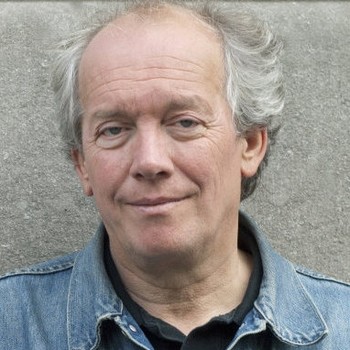
Люк Дарденн
Luc Dardenn
Director, writer, producer
Creators of intensely naturalistic films about working class life in Belgium, brothers Luc and Jean-Pierre Dardenne have created a notable body of work since 1996. With La Promesse (The Promise) (1996), Rosetta (1999), Le Fils (The Son) (2002), and L'Enfant (The Child) (2005), the Dardennes’ films show young people at the fringes of society – immigrants, the unemployed, the inhabitants of shelters. Both Rosetta and L'Enfant were awarded the Palme d'Or at the Cannes Film Festival, the only two Belgian films ever to earn the honor.
The Dardennes were born and raised in Seraing in Liege, in Wallonia, the French-speaking region of Belgium. Jean-Pierre (born in 1951) studied drama while Luc (born three years later) studied philosophy. In 1975 they established Derives, the production company that produced the roughly sixty documentary films they made before branching into feature films. These films covered such topics as Polish immigration, World War II resistance, a general strike in 1960 . Their first two feature films, however, are rarely seen today: Falsch (1987) and Je pense a vous (1992), which Luc would later describe as an "unfortunate adventure."
The Dardennes had their first international success with La Promesse (The Promise) in 1996.
With Rosetta the Dardennes turned their focus to the burdens – philosophical, spiritual, psychological – of unemployment. Émilie Dequenne, who had not acted in film before, and was awarded the Best Actress Prize at the Cannes Film Festival, is the title character, a young woman living with her alcoholic mother in a trailer park. The film is about Rosetta's search for purpose and to Rosetta purpose can only be found through work – she makes her way through Seraing's fringes for the most menial of positions; she catches fish in the muddy, murky stream by her trailer park. Rosetta was the first Belgian film ever to win the Palme d'Or at Cannes, coming in ahead of films by David Lynch, Pedro Almodóvar, Takeshi Kitano, and Raoul Ruiz. The film provided some impetus for a labor law designed to protect young workers like Rosetta shortly after the film's release. "’[I]t was pure chance,’ Jean-Pierre insists. ‘There was already a bill going through, and the minister took advantage of our award to call it the Rosetta Law. But we never intended to get laws changed.’ Luc adds: ‘Of course, we always hope our films will speak to people, disturb them, but we never hoped to change the world’."
Crimes and occupations again figure prominently in the Dardennes’ fourth film, L’Enfant (The Child). The film earned the Dardennes the Palme d'Or from Cannes, their second in seven years. L'Enfant won the André Cavens Award in 2005, making directors Jean-Pierre and Luc Dardenne fourth time winners of the award.
The Dardenne brothers have a regular stable of collaborators (for all of their films the brothers share writing and directing credits), including cinematographer Alain Marcoen and editor Marie-Hélène Dozo. Jérémie Renier played Igor in La Promesse, Bruno in L’Enfant, Claudy in Le Silence de Lorna (Lorna's Silence) and Guy in Le gamin au vélo (The Kid with a Bike), while Olivier Gourmet, the main character of Le fils, has a brief cameo as a detective in L’Enfant. Like Rosetta's Emilie Dequenne, Déborah François, the seventeen-year-old lead in L’Enfant, was appearing in her first film. Luc Dardenne has described their process of working with actors as follows: "What we do with the actors is also very physical. The day filming begins we do not feel obliged to do things exactly the way they were rehearsed; we pretend that we are starting over from zero so that we can rediscover things that we did before. The instructions we give the actors are above all physical. We start working without the cameraman—just the actors and my brother and me. We walk them through the blocking, first one then the other, trying several different versions. They say but do not act their lines. We do not tell them what the tone of their lines should be; we just say that we will see once the camera is rolling. At this point there is no cameraman, no sound engineer, no lighting. Then we set up all the camera movements exactly and the rhythm of the shot, which is usually a long take. Doing it this way allows us the ability to modify the actors’ movements or any small details."
The Dardennes often employ handheld cameras and use available light. In June 2012, the brothers were invited to join the Academy of Motion Picture Arts and Sciences.
Their 2014 film Two Days, One Night was selected to compete for the Palme d'Or in the main competition section at the 2014 Cannes Film Festival. The film received nine nominations at the 5th Magritte Awards, winning three, including Best Film and Best Director. Marion Cotillard received an Academy Award nomination for Best Actress for her performance in the film, the first Oscar nomination for a Dardenne brothers film.